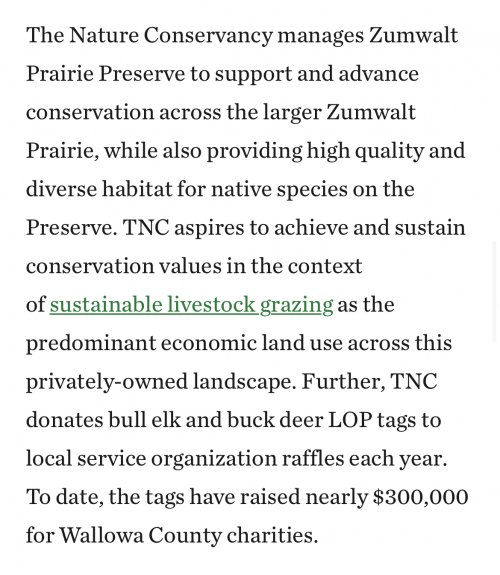Hydrophilic
Well-known member
I live in the last untouched short grass prairie in the western US. The high plains.
16 pages in and I don't see much prairie in the talk, just talk.
Thanks to the Nature Conservancy, the largest intact PNW bunchgrass prairie will stay intact. The number of wildflowers there is staggering, definitely a reprieve from seeing fields of Tansy and wild carrot.


Visit the Zumwalt Prairie Preserve in Oregon
Visit Zumwalt Prairie, the largest remaining grassland of its type in North America! See hawks, eagles, elk, bears, and Oregon's native grasses and wildflowers.




